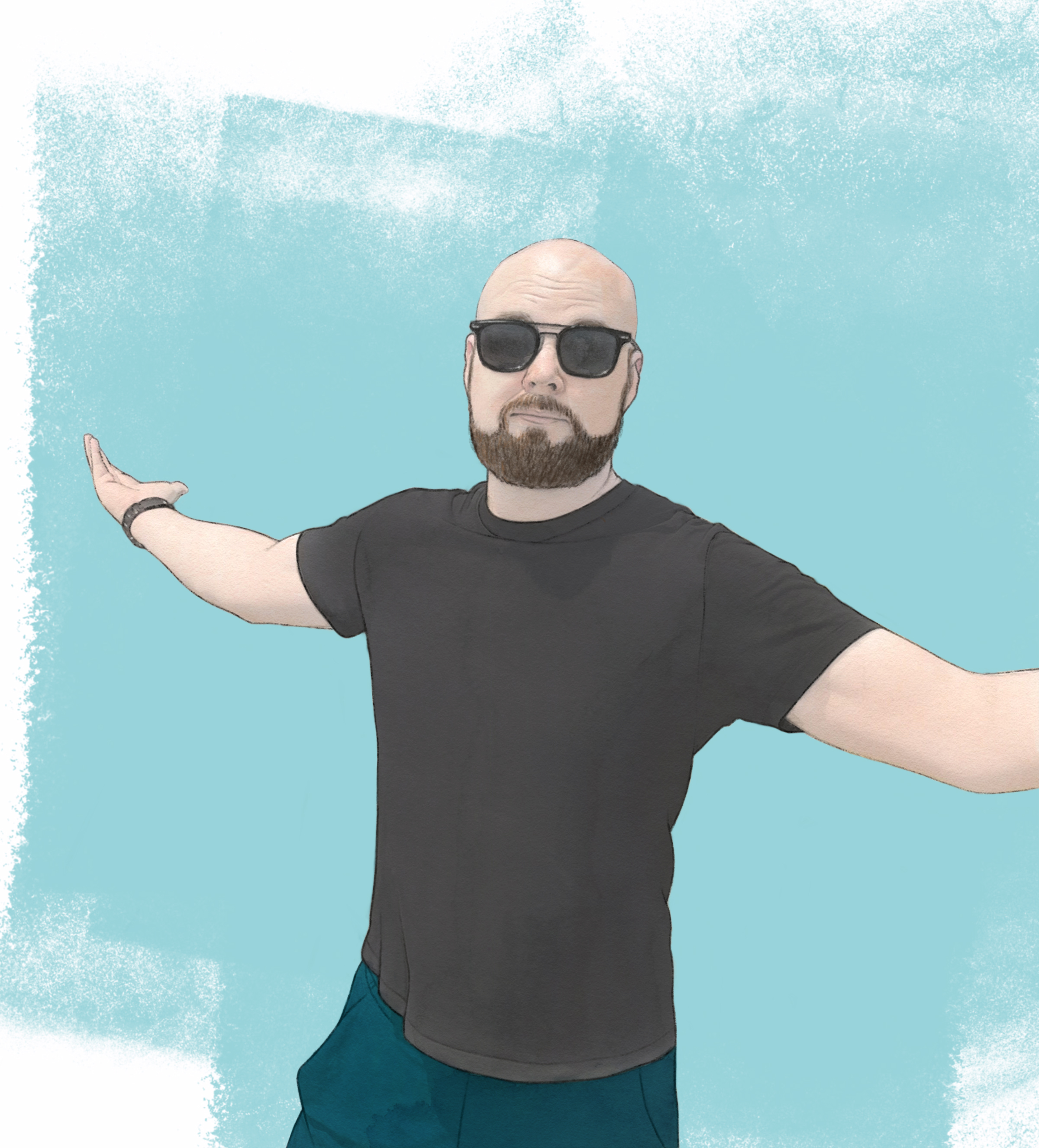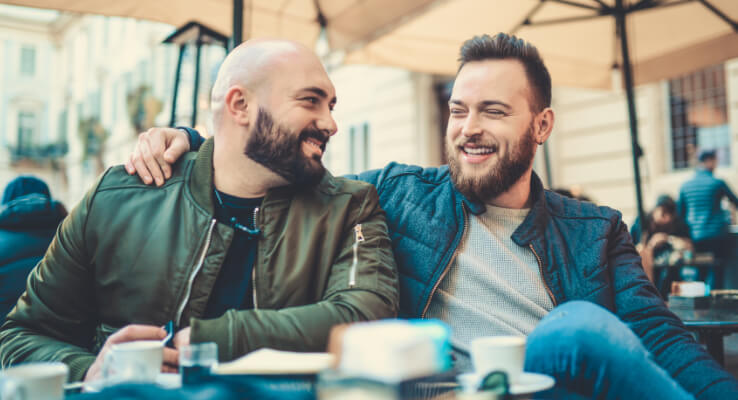 Brent Nicol never really considered physical activity to be important but a chance encounter with exercise changed the course of his life. However, it took time, effort, and a lot of problem-solving. These days Brent works to support medical professionals in integrating exercise and physical activity prescriptions into routine healthcare while overseeing a nationwide education program that does the same.
Brent Nicol never really considered physical activity to be important but a chance encounter with exercise changed the course of his life. However, it took time, effort, and a lot of problem-solving. These days Brent works to support medical professionals in integrating exercise and physical activity prescriptions into routine healthcare while overseeing a nationwide education program that does the same.
As a child and well into young adulthood, I always thought that going to the gym, exercising, or playing sports was for meatheads and people who took steroids. I believed these activities were ego-driven, self-indulgent, and part of a broader toxic masculine culture that I didn’t want to be a part of. Growing up, exercise was never an option for me.
At 19, I was the alcoholic child of an alcoholic parent. I’d finished school, and gone straight to university, where I pretended to study law. Due to a variety of factors, I didn’t do very well. I spent four or five days of the week drinking 20-40 standard drinks, playing computer games about 18 hours a day, barely eating or drinking (water), and developing a strong combination of depression, anxiety, alcohol abuse, insomnia, nightmares and disordered eating. Of course, I didn’t have a job and lived with my parents, loved heavy metal and wearing all black. I only weighed 61kg.
There’s a long list of problems that come from living this sort of lifestyle, and as such, my whole body hurt most days. I had persistent disabling migraines, neck pain, back pain, joint pain — you name it. Life was hard, I had no job and no options, was failing university, was too scared to speak to anyone about it, and very unwell.
One night, a door-to-door salesperson came through our neighbourhood looking to tell people about a new karate club starting up in the area. My older brother invited them in to tell us more and what it would look like if we joined. I, of course, being the brave and powerful individual that I was at the time, hid in the bathroom until they left. I was shocked to find that my brother had signed us both up to become karate students. Training happened 800 metres from our house, on a Thursday night.
I did not attend training for a full month after we signed up, as Thursday night was student night and that was prime drinking time. My brother had attended, however, and told me many amazing stories about how there’s a world in which you can simply defend yourself if attacked through the power of martial arts. He showed me some moves … I wasn’t really impressed but was convinced to go along.
I trained in karate for one hour that week, 6-7pm. I was home and asleep by 7:15pm. Now, the instructor told us that if we learned our ‘kata’ steps by next week — kata translates to ‘form’ and is a set pattern of moves designed to teach students how to complete combinations of attack, defence, and movement — we would be able to learn the whole thing, and that would get us one step closer to getting our next ‘belt’. When I woke up the next day, I practised my kata. I was already sore from training the previous night, but there was something in this karate stuff.
I practised my kata in my room until I couldn’t move my body anymore, then went and ate a huge meal. I was hungry, which was different for me. I felt ‘not as bad as usual’. I hadn’t rolled out of bed and gotten on the computer.
This persisted for a very long time, although I went on to fail law, got kicked out of university, and continued to drink. But something else persisted as well — I continued to train in karate. At first, it was brutally hard, and I was unable to even hold my head up properly, I couldn’t get my arms and legs into the right positions to even stand in the ‘neutral’ stance, let alone some of the more dynamic fighting positions. But I was getting better, I could see and feel progress.
Over the next two years, I put on 18kg, went from training for one hour and passing out, to training every day for several hours. I competed in a state-level tournament with a hangover, threw up before and after my fight, and placed third. As I didn’t have a driver’s licence, my father would drive me to a different dojo every night, and sit in the car for up to two hours while I did my thing.
Around this time, I was approached by the karate club — they were looking for dedicated students to share the message that karate was in town. I was offered a job to go to people’s houses and talk to them about how helpful karate could be.
I started to do other martial arts, one of which, a full-contact style, had training on Saturday morning. I went and routinely threw up as I was hit quite often in the stomach, a horrible experience when you’re nursing a hangover, not to mention being kicked in the head with a splitting headache. Things started to change; I decided I needed to reduce my alcohol intake. I needed to look at the rest of my life to honour and support the work I was doing on my body, and with my martial arts and physical activity journey.
At 24, I started trying. I got a second job. I was training every day, learning about nutrition, exercise and mental health. Trying to do everything I could to sort out my life. I also found I was pain-free — moving my body made it hurt less. Turns out being stronger meant my back doesn’t hurt from sitting down. This was amazing to me. Every time I trained, I was excited, hopeful and feeling great. I was eating regularly, drinking lots of water, and gradually, having less nights out, and less drinks at home, and learning about lifting weights in the gym.
Along the way, I’d acquired black belts in three martial arts and had become an instructor, teaching new students all the things I’d learned. I loved it, taking things I’d worked so hard to understand and helping other people get the same benefits? Amazing.
At this time, it occurred to me that I’d come so far, and owed my parents so much, that I wanted to find a way to give back to them, to make sure I could look after them if it ever came to it, and my current jobs wouldn’t ever provide that kind of financial stability. I decided to return to university and become an allied health professional. Of all the paths available, I settled on clinical exercise physiology. An amazing blend of science and psychology, a degree that was designed to produce professionals to help people like myself, because at that stage I had no hope and no reasonable expectation of ever doing anything positive for my health, and had never considered that movement could help me in any way.
In the past, when things were hard, I’d given up. During my degree, things were hard, but I’d learned a bit about persistence. I’d learned about problem-solving, and I’d demonstrated to myself that I could improve. I used the skills I’d learned from training to help me not give up now. How had I learned not only one kata, but 53? By doing them. A lot. So, I ‘did’ university. A lot. If I didn’t understand something, I read it again. I asked again. And I read it again. Just like in the gym, just like in the dojo.
I’m 37 now. I’ve never stopped martial arts, but I’ve also included weights, cardio, hiking, running, whatever comes up. I don’t drink. I don’t have mental health problems, I’m the ‘exercise guy’. I don’t have pain. I’ve spent my career helping people just like me get through their barriers and use movement and education to build a better life. I’ve got two bachelor’s degrees and a master's. I’ve started businesses, run allied health clinics, worked for universities, trained hundreds of professionals, managed huge teams and helped thousands of people. I enjoy my life.
I couldn’t have done anything or achieved anything without people helping me, teaching me, and supporting me (in all the ways possible). If you feel like you can’t take any steps, then find someone who can help. Not to plug us too hard, but accredited Exercise Physiologists are healthcare professionals specifically trained to work with you to build a life and a plan that takes into account your whole situation, what helps and what doesn’t, and to work alongside you to support you in whatever you want to do. Barriers are our speciality.
Now, with everything, ‘results may vary’, but there’s one thing you can count on. Any amount of exercise, no matter how small, can help you out. Never compare yourself to anyone else, meet yourself where you’re at, and do what you can until you can do more.
Not to get too sentimental, but wow, do I owe it to a random karate salesman, my older brother, and my dedicated dad taxi.





